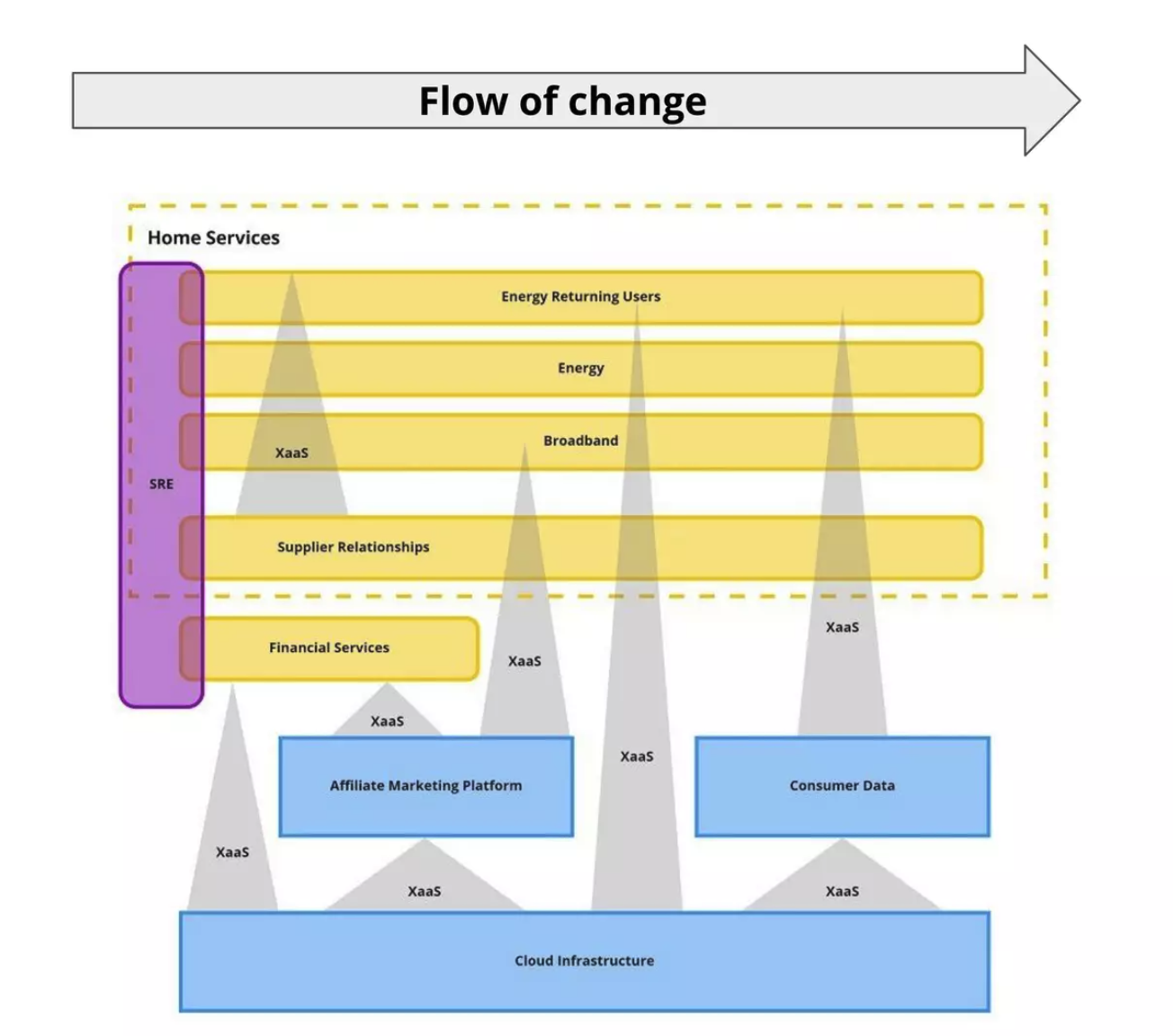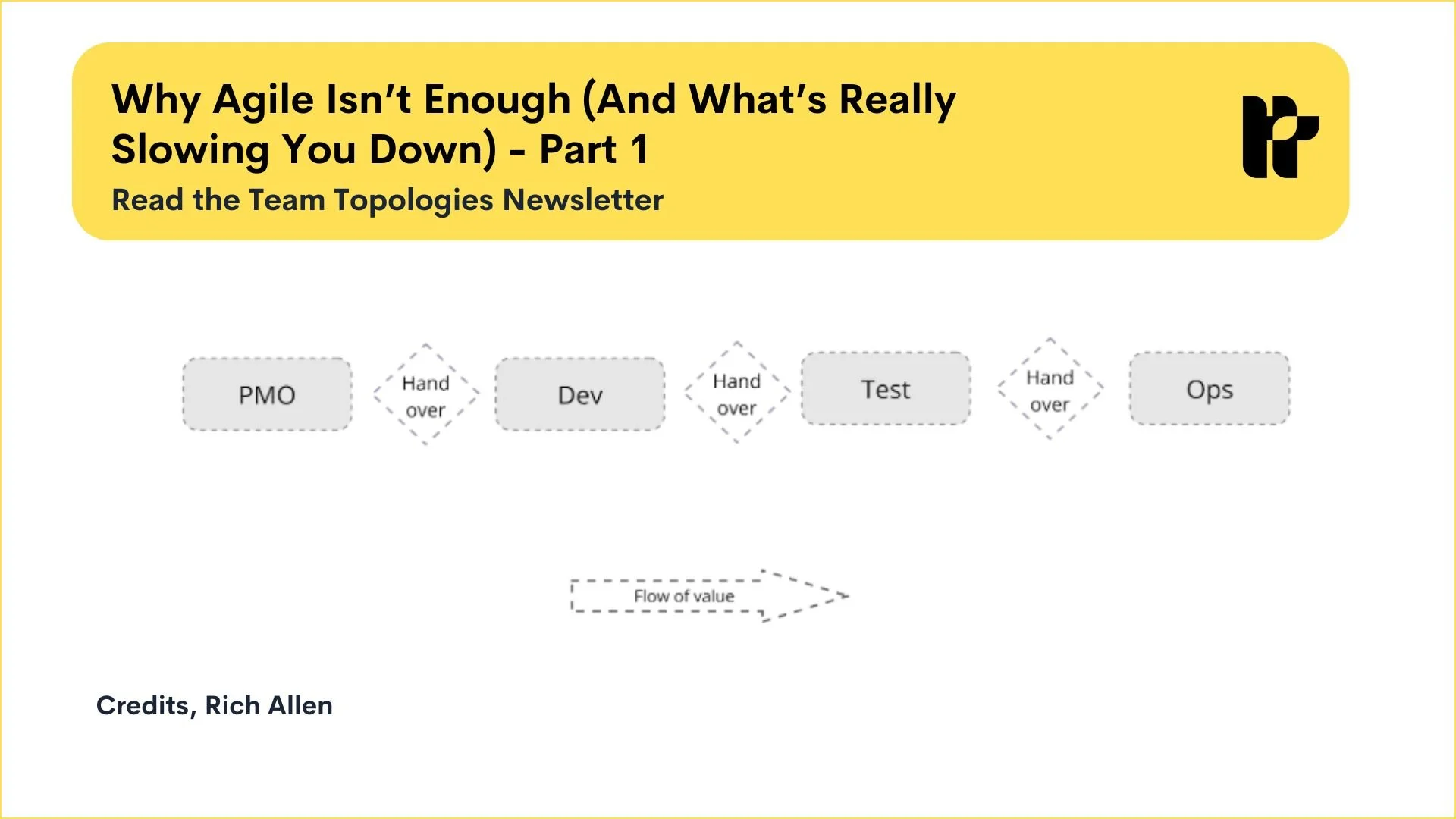Newsletter (May 2024): Transform Your Workflow: The Impact of Platform Engineering
What is Platform Engineering and Why Should You Care?
In a world where fast pace needs to go hand in hand with efficiency, the shift towards platform engineering has helped some of the most well-known companies to build, deploy, and run applications more efficiently and effectively. By providing internal platform services to other teams, teams in platforms play a vital role in supporting the software development process. Team Topologies offers a structured approach to organizing platform engineering teams, defining the Platform Team's role, enabling the "Platform as a Product" model, and fostering effective team interactions that help reduce the cognitive load of stream-aligned teams
Your platforms should multiply the value created by your product teams. Our team of practitioners help leaders design better platform strategies supported by effective team-of-team organizations.
Netflix and Airbnb have reaped the benefits of this approach early on. Martin Fowler emphasizes this in his blog post, and Dave Farley offers valuable tips on building platform teams. One crucial starting point is measuring cognitive load. One company, for instance, found their platform was not addressing the real issues faced by product teams. Reducing cognitive load should improve metrics like lead time and reliability and has a direct impact on the developer experience (DevEx), but measuring this value isn't straightforward and often requires a leap of faith.
Another way to manage cognitive load is through collaborative modeling sessions, where teams are directly involved in crafting the software design. Kenny Baas-Schwegler will discuss this and the dilemma it raises at DevOps Days.
In Team Topologies, Platforms is a grouping construct, that can contain any other of the fundamental team types. Teams in platforms are product teams and should be handled as such. Matthew Skelton and Manuel Pais, the authors of Team Topologies, explain why it is important to treat (internal) platforms as any other product, understanding its value proposition, its customers, and the platform adoption lifecycle. They also provide a quick 2-hours crash course on that.
What’s Coming Up Next?
You might be wondering what is the future of platforms, considering their adoption and evolution so far.
There are a bunch of events coming up where you can learn more about the benefits of platform engineering and reducing cognitive load.
If you are just starting your journey or want to see if you are ready to start working with Team Topologies, there is a free self-assessment that will lay the foundation. For a fast track you can talk to one of our experts.
Your platforms should multiply the value created by your product teams. Our team of practitioners help leaders design better platform strategies supported by effective team-of-team organizations.
Learn From the Community/Join the Community
The Team Topologies community is evolving as the concepts behind Team Topologies. We welcome new stories from the trenches and new perspectives. A warm welcome to our newest members:
We want to remind you that our community is here to support each other by sharing experiences and challenges. We believe that by working together, we can all learn and grow.
If you're passionate about Team Topologies and want to become an advocate, we would love to have you join us. Or, if you have a story to share, we would be honored to feature it on the website.
Was this newsletter useful? Please share your thoughts on how we can make it better. Send us an email.












